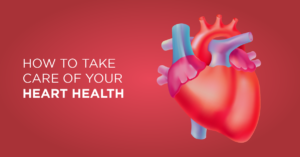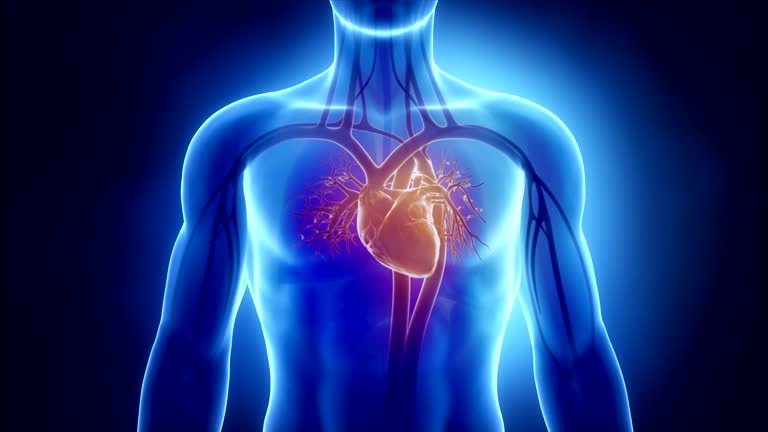Understanding Heart Health
Heart health is an essential component of overall well-being, playing a critical role in the functionality of the entire body. The human heart, a muscular organ located in the chest, is responsible for pumping blood throughout the body, delivering oxygen and essential nutrients to tissues while facilitating the removal of carbon dioxide and waste products. Comprising four chambers—the right atrium, right ventricle, left atrium, and left ventricle—this intricate structure engages in a coordinated cycle of contraction and relaxation, commonly referred to as the cardiac cycle.
Maintaining optimal heart health is vital, as a range of common cardiovascular diseases can negatively impact its function. For instance, coronary artery disease (CAD) arises when the coronary arteries become narrowed or blocked, often due to plaque buildup, which can lead to angina or heart attacks. High blood pressure (hypertension), another common condition, puts additional strain on the heart and arteries, increasing the risk of severe complications, including heart failure and stroke. Understanding these diseases highlights the critical importance of proactive heart health measures.
Several risk factors contribute to the development of heart diseases. Genetic predisposition plays a significant role; if there is a history of heart disease in one’s family, the likelihood of developing similar conditions can increase. Lifestyle choices, such as poor diet, lack of physical activity, smoking, and excessive alcohol intake, also significantly impact heart health. Additionally, age is a critical factor, as the risk of heart disease generally escalates with advancing age. Recognizing these factors fosters a heightened awareness of heart health and underscores the importance of preventive strategies.
In summary, understanding the anatomy and function of the heart, as well as the associated risks of cardiovascular diseases, paves the way for making informed choices that promote long-lasting heart health.
Lifestyle Changes for a Healthier Heart
Maintaining heart health is essential for overall well-being, and several lifestyle changes can significantly improve cardiovascular fitness. One of the most critical components is nutrition. Incorporating a diet rich in fruits, vegetables, whole grains, and lean proteins can provide essential nutrients that support heart function. Aim to include a variety of colorful vegetables and fruits in your meals. These foods are high in antioxidants and other compounds that can help lower blood pressure and reduce cholesterol levels. Additionally, it is important to minimize the intake of processed foods that are often laden with sodium and added sugars. Reducing salt and sugar intake can help in managing body weight and blood pressure, contributing to a healthier heart.
In conjunction with dietary adjustments, maintaining a healthy weight is paramount. Being overweight or obese can strain the heart and lead to a host of related health issues. To support weight management, regular physical activity must be incorporated into your daily routine. Activities such as walking, jogging, cycling, or swimming are excellent options that promote cardiovascular endurance while also enhancing mood and energy levels. The American Heart Association recommends at least 150 minutes of moderate-intensity aerobic exercise each week. This can be achieved through shorter sessions; for example, breaking the 150 minutes into 30-minute sessions five times a week can make the goal more digestible.
For those unfamiliar with exercise routines, starting small is key. Aim to engage in physical activity that you find enjoyable, as this makes it easier to stay committed. Integrating activities into your daily life, such as taking the stairs instead of the elevator or walking during lunch breaks, can help build a more active lifestyle. In conclusion, through careful attention to diet and exercise, significant improvements in heart health can be achieved, leading to a vibrant and healthy life.
Preventive Measures and Regular Check-ups
Maintaining a healthy heart is a fundamental aspect of overall well-being, and implementing preventive measures can significantly reduce the risk of heart disease. Regular health check-ups and screenings are essential components of this strategy, allowing healthcare providers to monitor critical indicators such as blood pressure and cholesterol levels. These routine evaluations enable early detection of potential issues, facilitating timely intervention. Guidelines typically recommend that adults undergo annual check-ups, which may include lipid panels to assess cholesterol levels and blood pressure readings to evaluate cardiovascular risk.
Understanding the importance of blood pressure control is pivotal. High blood pressure, or hypertension, can damage the arteries and lead to heart disease over time, making consistent monitoring vital. Similarly, managing cholesterol levels is crucial; elevated low-density lipoprotein (LDL) cholesterol can contribute to plaque build-up in arteries, increasing the risk of heart attack and stroke. Ensuring optimal levels of high-density lipoprotein (HDL) cholesterol is equally important, as it helps transport cholesterol away from the arteries and back to the liver for disposal.
In addition to monitoring these key health indicators, adopting a proactive approach towards vaccinations can help support heart health. Vaccines can prevent infections that, in certain cases, may have adverse effects on heart health. Furthermore, lifestyle modifications such as stress management techniques, and avoiding smoking and excessive alcohol consumption play a vital role in reducing heart disease risk factors. Stress is known to impact heart function, and developing coping strategies, such as mindfulness and regular physical activity, can be beneficial.
By integrating preventive measures and committing to regular medical check-ups into daily routines, individuals can take substantial steps toward sustaining a stronger heart and enhancing overall cardiovascular health.
Signs and Symptoms of Heart Problems
Recognizing the signs and symptoms of heart problems is vital for timely intervention and effective management of heart health. Heart disease presents a variety of warning indicators, and understanding them can empower individuals to seek medical advice promptly. One of the most common symptoms is chest pain or discomfort, which may manifest as a feeling of pressure, squeezing, or fullness in the chest. This sensation can last for more than a few minutes, or it may disappear and reappear. Chest pain should never be ignored, as it can indicate serious cardiovascular issues.
Another critical symptom to watch out for is shortness of breath. This may occur during physical activities or while resting and can signal that the heart is not pumping efficiently. Individuals may also report feeling an unusual level of fatigue, which is often overlooked. However, persistent fatigue, particularly when it interrupts daily activities, should raise concern regarding potential heart problems.
Swelling in the feet or ankles is another symptom that can be indicative of heart complications. Known as edema, this can result from the heart’s inability to manage blood circulation effectively, leading to fluid retention in the lower extremities. It is crucial to monitor such changes in the body closely.
Understanding these symptoms allows for more proactive health management. Immediate medical attention should be sought if individuals experience a combination of these warning signs, especially sudden and severe chest pain, as this can be indicative of a heart attack. Being educated about heart disease helps dismantle misconceptions, ensuring that individuals can act quickly and effectively in the event of a heart-related emergency. Early diagnosis and intervention can significantly improve outcomes for those at risk of heart problems.








Leave a Reply